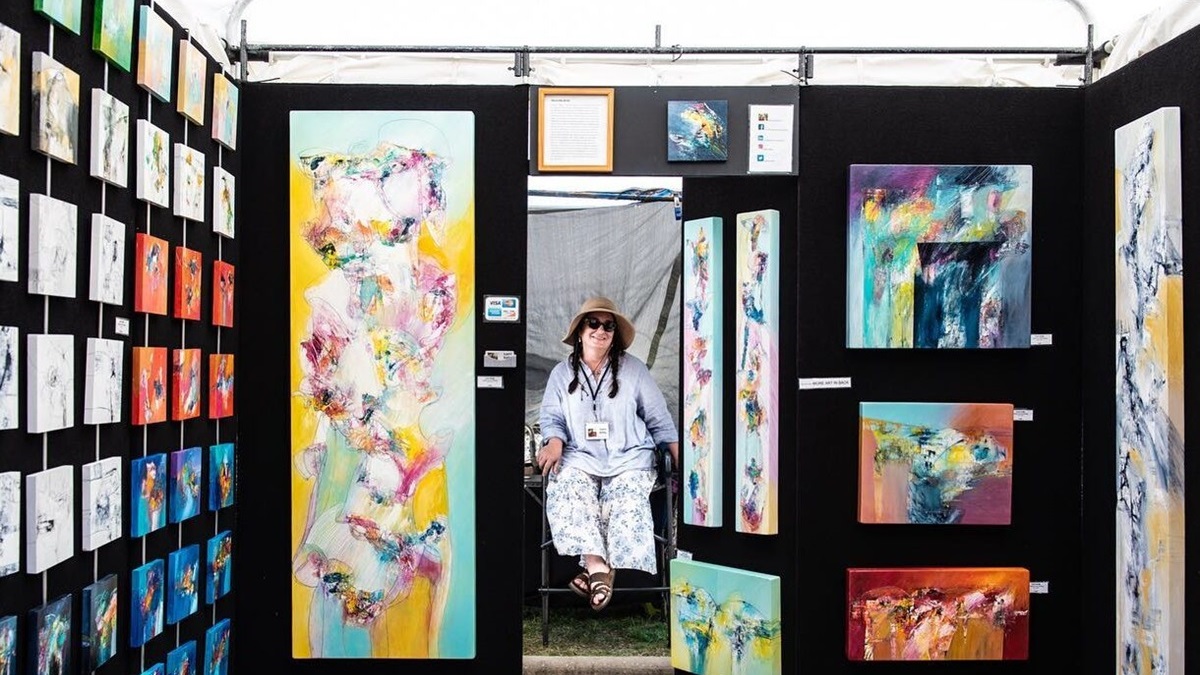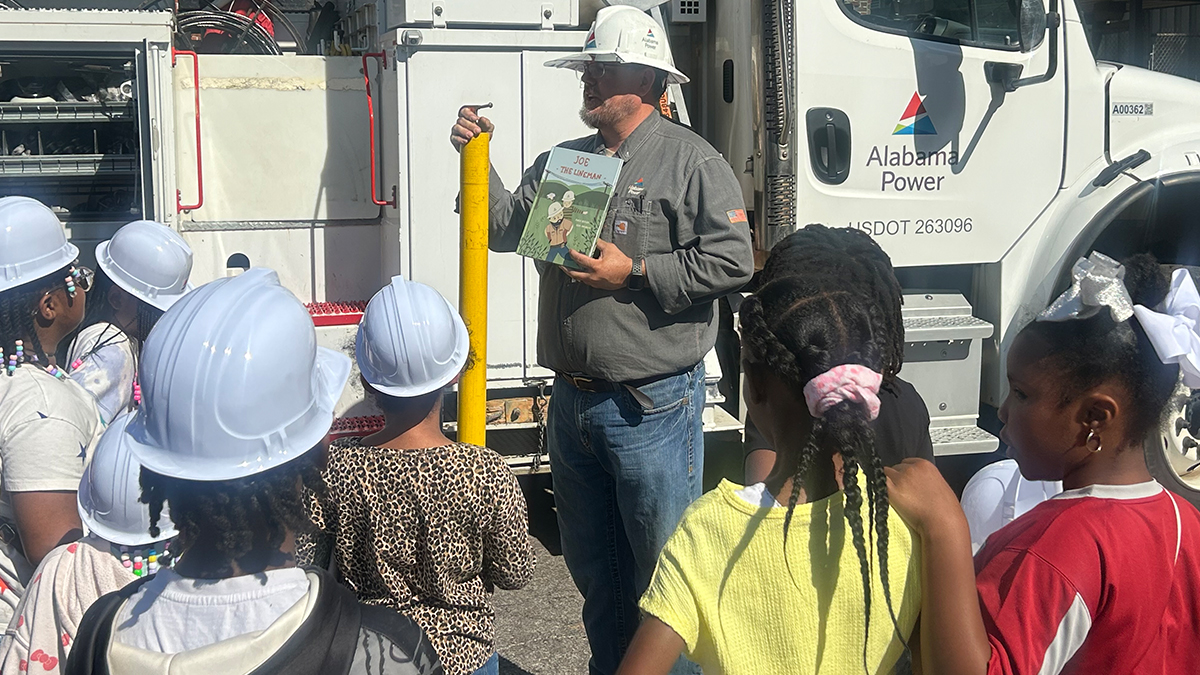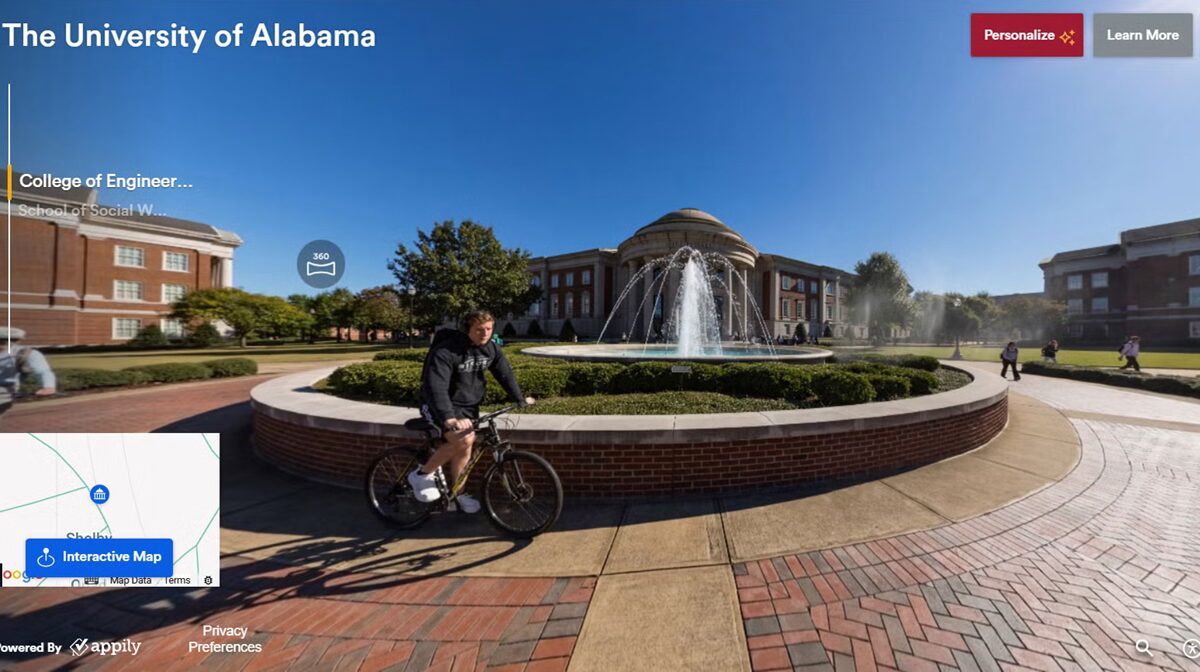Student-inspired project to make Community Garden at Auburn University accessible to all
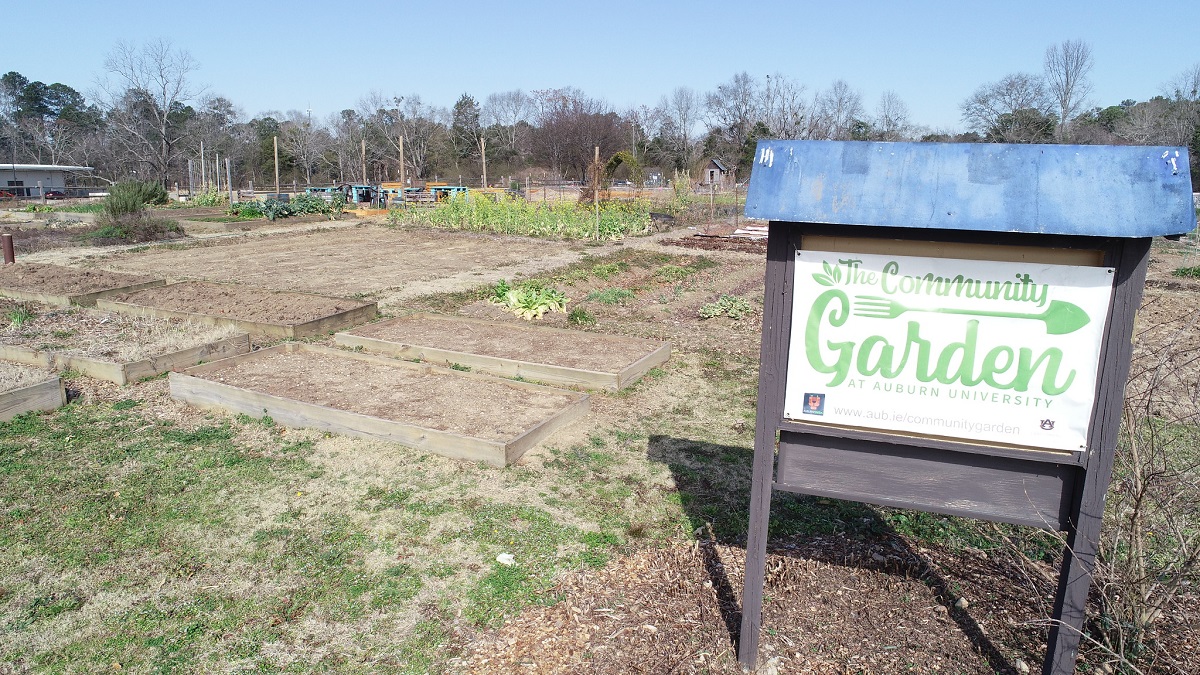
A 2023 Tiger Giving Day project will benefit The Community Garden at Auburn University by providing funding to help make it more accessible for people with disabilities. (contributed)
An Auburn University hidden gem that provides sustenance for community members will be accessible to all in the near future, thanks to a Tiger Giving Day project inspired by a dedicated group of campus collaborators.
Occupying roughly two acres nestled between the Robins & Morton Construction Field Lab and the Advanced Structural Engineering Laboratory on West Samford Avenue, The Community Garden at Auburn University has been a mainstay in the campus landscape for more than four decades. It has long offered area residents a place to enjoy growing their own food, while also providing a boost to Campus Dining’s food supply.
Krista Fincke — a graduate student in the Department of Biological Sciences in the College of Sciences and Mathematics — discovered the garden shortly after arriving on the Plains in 2019 to begin work on her master’s degree, but her access to the community resource was limited. Fincke, who has muscular dystrophy and began using a wheelchair at age 18, began asking about the possibility of adding raised garden beds and making the area more accessible during her time as a member of her department’s Inclusion Activity Subcommittee. With the help of Assistant Professor Brian Counterman and support from William Walker, who manages the garden for Campus Dining, the group approached Auburn Advancement, which helped get the project added to this year’s Tiger Giving Day lineup for Feb. 22.
“I talked to a friend of mine who is a former Auburn student who also uses a wheelchair and said, ‘Wouldn’t it be cool if the gardens had raised beds?’” said Fincke, who earned her undergraduate degree at the University of South Florida. “Even though I have a really good chair that’s great going ‘offroad,’ the aisles were narrow, and the beds were not really raised enough to where somebody with mobility issues could access them. I joined the committee specifically because I wanted to advocate more for people with disabilities, and when we started brainstorming projects, this is what I came up with.”

Counterman will oversee the accessibility project, which has a fundraising goal of $15,000, and his wife, Amy — a landscape architect and professor of practice in the College of Forestry, Wildlife and Environment — will serve as the landscape designer. The team not only plans to add raised, accessible garden beds, but also to create semi-permeable drop-off spots, a navigable perimeter around the garden beds and parking areas to improve access for people with disabilities.
“We want to make it so that wide groups of people from Auburn and the broader community can have access to this longstanding community garden,” said Brian Counterman, who chairs his department’s Inclusion Activity Subcommittee. “I’m real excited that I can carry this torch and do this project, and we think it is unquestionably going to make a difference for the community. Amy and I kept running into William at farmers’ markets, and we said, ‘We’ve got to make this happen.’”
The money raised also will provide accessible tools and storage lockers, new signs and paved aisles at the garden. The group hopes to align the creation of accessible beds with an already approved irrigation improvement project that will be applied at the garden this year.
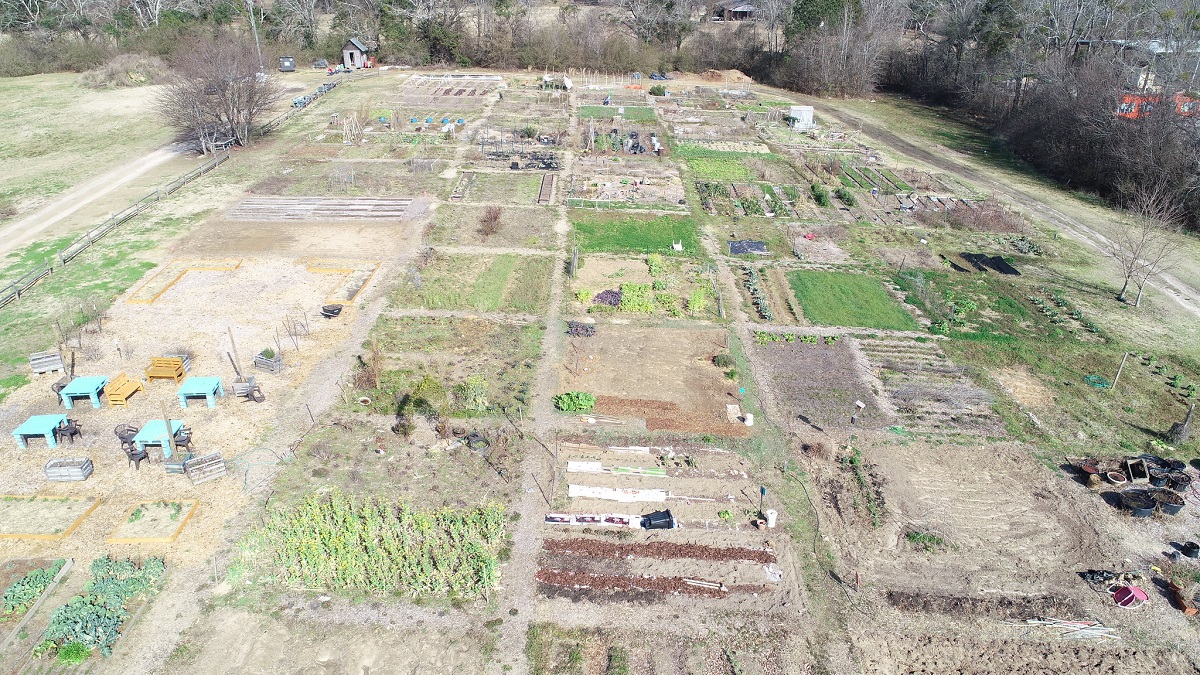
The Community Garden at Auburn University has been a fixture at the university for more than four decades. It features gardening plots ranging from 90 to 900 square feet. (contributed)
The garden’s members include people from Auburn’s campus and the neighboring community. Visitors can see diverse cultures represented by international participants growing a variety of food from around the globe. The operation provides food to The Campus Kitchen, which serves students with food insecurities, and has partnerships with area, local and state food banks.
“One of the things that is important to us is building a place that fosters community and that reaches out to the local populace outside Auburn University,” Walker said. “This project is exciting and was the perfect next step for finding a new way to bring in another level of community, a new group of people into the garden, and it’s exciting.”
Auburn’s Department of Horticulture in the College of Agriculture uses the garden in several classes, and the space also hosts community events and produces thousands of pounds of food each year that is infused into Campus Dining’s programs and donated to area food banks.
“When running the garden, we look at it through the lenses of how we create community and how we provide hunger solutions, sustainable agriculture and education,” said Walker, who serves as assistant director of Campus Dining. “We’re always trying to be innovative, but at the same time make sure we’re staying in line with our core values and our mission.”
The garden features plot sizes ranging from 90 to 900 square feet, with affordable rentals available for anyone interested. Walker said the plots fill up fast, usually by the start of the gardening season in March.
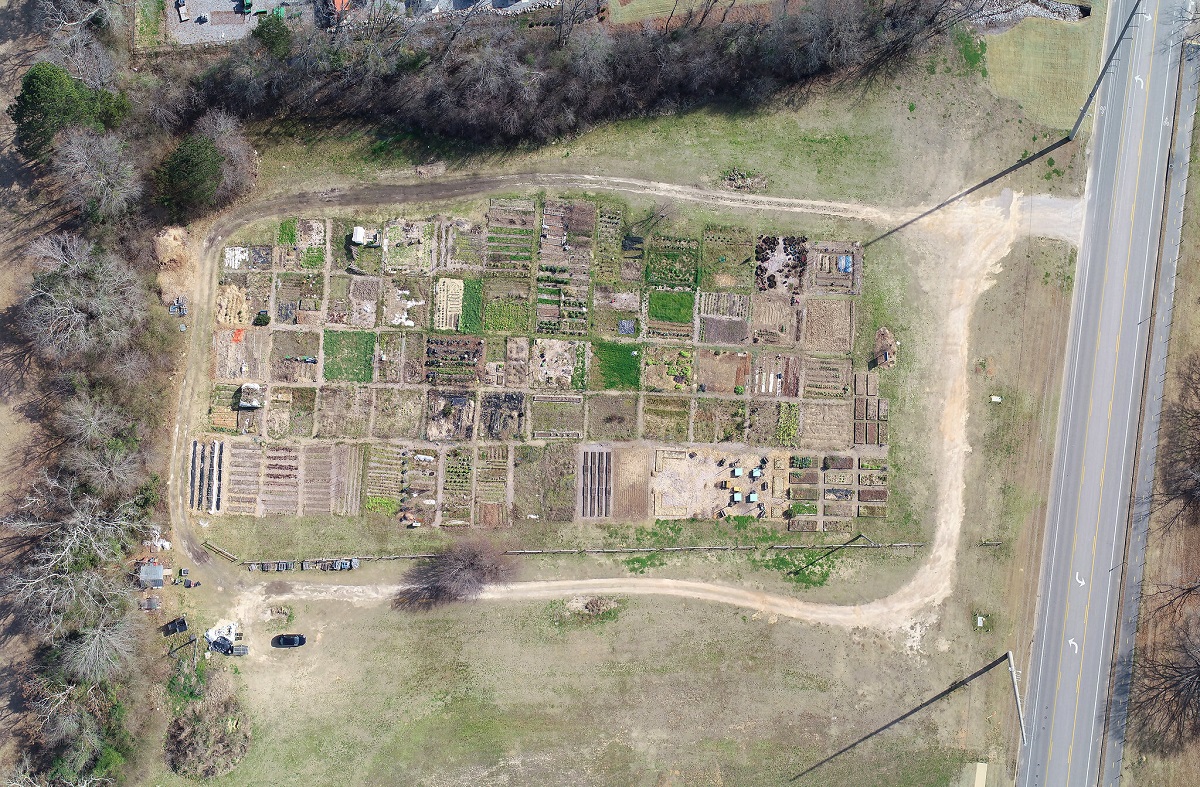
The Community Garden at Auburn University occupies nearly two acres between the Robins & Morton Construction Field Lab and the Advance Structural Engineering Laboratory on West Samford Avenue. (contributed)
For Fincke, the Tiger Giving Day project represents an opportunity to make the garden available for a wider group of people to enjoy. It also aligns with her personal passion of creating equity for those who have been marginalized.
“As I’ve gone through my disability journey, I’ve seen the struggles people with disabilities have to overcome, and it’s really ignited a passion and an interest in equity,” she said. “The more it’s in the spotlight, the more awareness people have, and I’ve been really compelled to do what I can to help level the playing field.”
Fincke has been surprised by the speed of the collaboration across Auburn’s campus to fast-track the initiative. “I never pictured it getting this much attention when I first had the idea,” she said.
She said the improvements will help demonstrate the university’s continued commitment to making the campus safe and accessible for everyone. “I’m glad there has been a push in the past 10 years or so at Auburn, and I can definitely speak for my department in how it is really committed to accessibility and equity for everybody.”
Brian Counterman said the group plans to implement the improvements and new features throughout the remainder of 2023 and is looking at early 2024 for completion of the accessibility enhancements.
“Cutting a ribbon a year from now would be ideal,” he said. “It’s going to take a bit of time, but it’s just been so easy and pleasurable working with this group so far. I’m really happy I’ve been able to play this role, and I will stick with this to make sure it gets to the finish line.”
This story originally appeared on Auburn University’s website.




